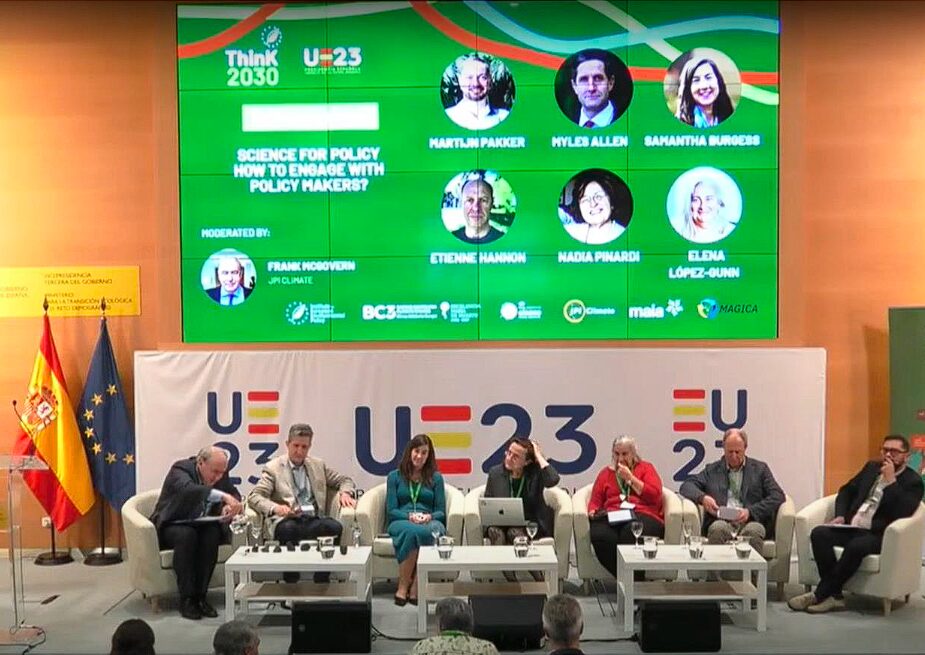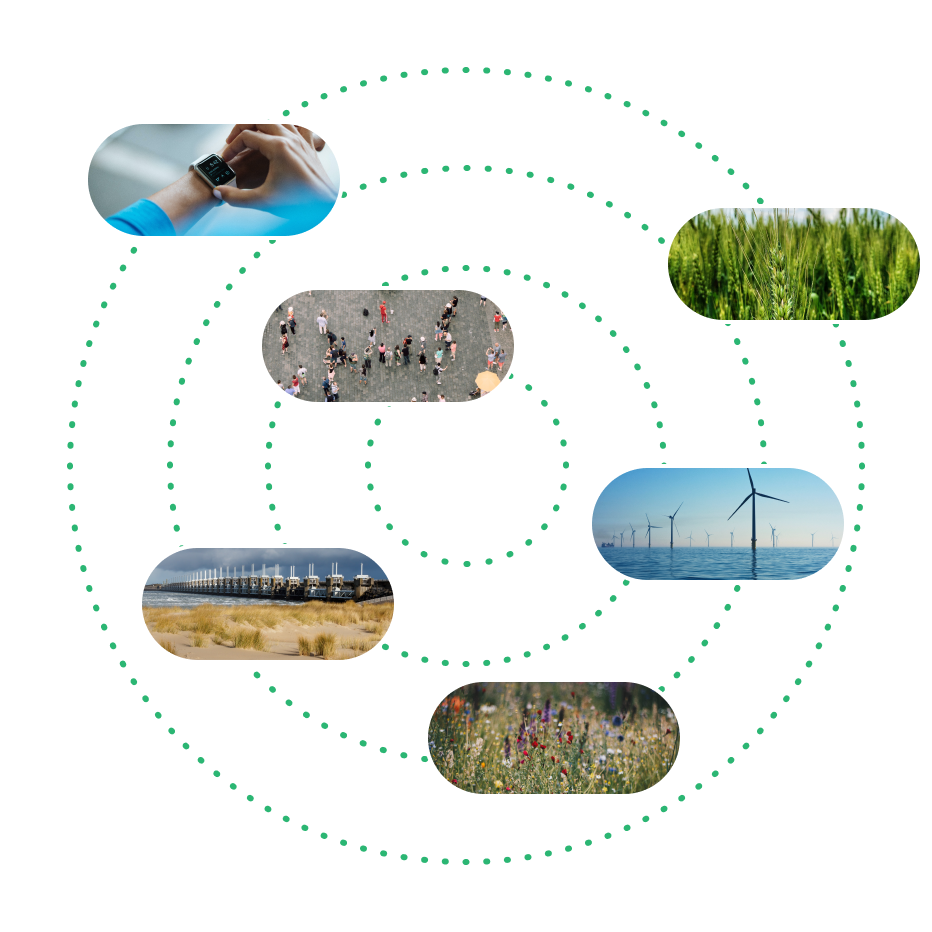Event Date: November 16, 2023
Location: Ministry for the Ecological Transition and the Demographic Challenge, Salón de Actos Domingo Jimenez Beltrán, Edificio Plaza San Juan de la Cruz 10, Madrid
Co-organised by: IEEP, BC3-MAIA Project, and Elcano Royal Institute
Event Overview
The 2023 Think2030 Dialogue Spain was a pivotal event organized under the auspices of the Spanish Presidency of the Council of the European Union. This one-day event brought together policy-makers, scientists, and stakeholders to discuss critical actions needed to tackle climate challenges and to explore the presidency priorities related to sustainability. Held on November 16, 2023, in Madrid, the event featured three key Science4Policy sessions focusing on the geopolitics of the Net-Zero transition, just transition in Europe, and effective engagement between scientists and policymakers.
Session Summaries
1. The Role of the EU in Governing the Geopolitics of the Net-Zero Transition
This session delved into both the internal and external dimensions of the European Green Deal, emphasizing its significance beyond environmental and climate strategies. The discussions highlighted the Green Deal’s role in reshaping the economy, creating a political framework, and establishing funding mechanisms that position the EU advantageously in global competitiveness, particularly against the US and China.
A crucial takeaway was the emphasis on interdependency rather than competition. The EU’s climate strategy should foster trust and cooperation with other countries, particularly those that contribute significantly to global emissions. The session underscored the need for a plurilateral approach to build mutually beneficial partnerships, ensuring that climate policies do not merely shift emissions-intensive industries abroad but rather integrate sustainable practices globally.
2. Just Transition in Europe: Lessons from the Spanish Experience
Focusing on the social dimensions of the green transition, this session highlighted Spain’s approach to a just transition through its National Energy and Climate Plan (NECP). The NECP is projected to generate 522,000 net jobs annually, improve household incomes by reducing energy bills, and lower air pollution, thereby decreasing premature mortality by approximately 5,000 people.
Speakers emphasized the importance of equitable job creation, particularly in regions adversely affected by the transition. Laura Martín discussed Spain’s strategy of closing coal power plants and generating green jobs through community agreements and targeted training. Juan Álvarez shared Endesa’s experience with the Andorra project, which transitioned from coal without layoffs, focusing instead on renewable energy projects.
María José Sanz from BC3 highlighted the importance of integrating scientific research with practical policy measures. She emphasized the need for data-driven approaches and the role of local contexts in shaping effective just transition strategies. Sanz also pointed out that while large-scale policies are essential, tailored solutions that consider regional specificities are crucial for the success of a just transition.
The session concluded with Manuel Riera advocating for active worker involvement in shaping just transition policies, highlighting the critical role of labour movements in ensuring social equity during the green transition.
3. Science for Policy: How to Engage with Policy Makers?
This session stressed the necessity of engaging citizens and policymakers in meaningful dialogues about climate change. Myles Allen introduced a visual model to illustrate the impact of carbon emissions, emphasizing the need for a straightforward dialogue about managing fossil fuel emissions. He advocated for holding fossil fuel producers accountable for carbon dioxide disposal, aligning with the EU’s Net-Zero Industrial Act.
Samantha Burgess from Copernicus highlighted the Climate Datastore, designed to enhance access to climate data and inform decision-making through predictive scenarios. Luc Bas emphasized the importance of effective communication between the scientific community and policymakers, advocating for regulatory measures to reduce consumption and redistribute material wealth to achieve sustainable development.
Conclusion
The 2023 Think2030 Dialogue Spain successfully facilitated a comprehensive discussion on the challenges and opportunities associated with the EU’s climate policies. By fostering collaboration between scientists, policymakers, and citizens, the event underscored the importance of a unified approach to achieving the goals of the European Green Deal and ensuring a just transition for all stakeholders.
For more information about the event, visit the Think2030 Dialogue Spain website.


Comments
There is no content